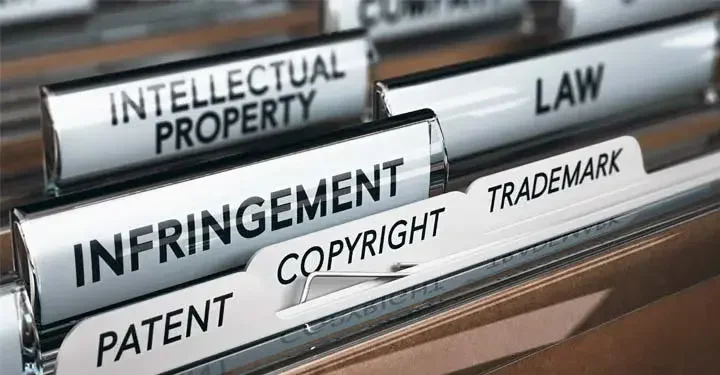Having your copyright or patent infringed is a valid concern—it happens every day. Fortunately, the law provides you with a legal remedy when this happens. Courts take infringement seriously and, if it is willful, the penalties for the defendant can be severe.

There are two main types of infringement, patent infringement and copyright infringement, both of which occur when someone uses a work without permission. In egregious cases, a defendant may be found guilty of willful infringement, which is when the work is used on purpose with the knowledge that doing so is in violation of the copyright or patent.
Criteia for willful patent infriingement
The most recent standard that the Supreme Court used for determining willful patent infringement is known as willful misconduct. When deciding whether a defendant acted with willful misconduct, the court follows a test known as the totality of circumstances, which means that all of the evidence and factors must be considered. Ultimately, determination of willful misconduct is up to the court's discretion.
Courts use three criteria to determine whether a defendant's infringement of a patent is willful:
- Did the defendant have knowledge of the patent or copyright? The first criterion assesses the knowledge and intent of the defendant at the time of the infringement. Without knowledge of the patent, there cannot be willful infringement. This does not mean that the defendant did not infringe on the patent, just that they will not likely be found to have willfully infringed the patent.
- Did the defendant have a good-faith belief that they would not be held liable for infringement of the patent? If the defendant passes the first criteria, the court then focuses on whether or not the defendant took the necessary actions to find out if they would be liable for infringement. Consulting a knowledgeable attorney and checking to see if the patent was registered would certainly be steps in the right direction and provide evidence of a good-faith belief.
- Was the belief reasonable under the totality of circumstances test? This standard is subjective and completely up to the court to decide after reviewing all of the facts and evidence in the case.
Criteria for willful copyright infringement
The Copyright Act does not define what “willful" means in relation to copyright infringement, but courts have defined it as a “reckless disregard." Once again, this standard looks at the knowledge of the defendant. The court wants to know if the defendant had knowledge and, if so, whether they still acted in such a way that infringed the copyright.
If the work had a copyright notice, which requires the use of the copyright symbol (©), or there was a name and publication date listed on the work and the defendant still used the work, the court will likely find that the defendant had knowledge. The copyright notice and or the actual name and publication date of a work are so explicit that there would have to be "reckless disregard" for the rights of the copyright owner if the defendant still chose to use the work.
The penalty for willful infringement
If you win your case and have registered your copyright, you may be awarded actual damages, statutory damages, and attorney's fees. If your copyright is not registered, you may only be awarded actual damages.
Statutory damages are a means for copyright holders to enforce and protect their intellectual property rights even when actual damages are minimal. However, when the infringement is willful, the Copyright Act allows the court to increase statutory damages by up to $150,000. In patent cases involving willful infringement, the court can also award enhanced damages equaling up to three times the amount of the actual damages.
The courts may not provide a black-and-white answer as to how they will determine willful infringement, but they do offer a general framework. As a plaintiff, proving willful infringement may seem difficult and sometimes arbitrary, but it certainly is not impossible.

